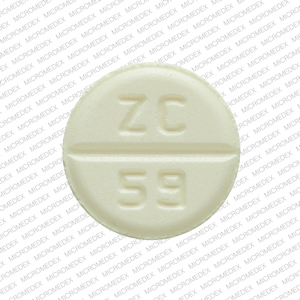Azathioprine Disease Interactions
There are 4 disease interactions with azathioprine.
Azathioprine (applies to azathioprine) bone marrow depression
Major Potential Hazard, High plausibility. Applicable conditions: Bone Marrow Depression/Low Blood Counts
Azathioprine may cause severe leukopenia, thrombocytopenia, macrocytic anemia, severe bone marrow depression and, rarely, pure red cell aplasia. Therapy with azathioprine should be administered cautiously in patients with bone marrow depression. Hematological toxicities are dose related. Caution and routine monitoring of blood counts and platelets is recommended. Patients should report any unusual bleeding or bruising.
Azathioprine (applies to azathioprine) infections
Major Potential Hazard, Moderate plausibility. Applicable conditions: Infection - Bacterial/Fungal/Protozoal/Viral
Serious infections, including reactivation of latent infections have been reported with the use of azathioprine. Cases of JC virus-associated infection resulting in progressive multifocal leukoencephalopathy (PML), sometimes fatal, have been reported in patients treated with immunosuppressants, including azathioprine. A diagnosis of PML should be considered in any patient presenting with new-onset neurological manifestations and a consultation with a neurologist is recommended. Consider reducing the amount of immunosuppression in patients who develop PML, and in transplant patients, consider the risk that the reduced immunosuppression represents to the graft.
Azathioprine (applies to azathioprine) renal dysfunction
Major Potential Hazard, High plausibility.
Azathioprine may accumulate in patients with impaired renal function. Therapy with azathioprine should be administered cautiously and may need dosage reduction in patients with impaired renal function.
Azathioprine (applies to azathioprine) liver disease
Moderate Potential Hazard, Moderate plausibility.
Azathioprine is metabolically converted to the pharmacologically active 6-mercaptopurine (6-MP). Conversion to 6-MP and metabolism of 6-MP may be impaired in patients with liver disease. Therapy with azathioprine should be administered cautiously in patients with liver disease. Monitoring liver function is recommended in these patients.
Switch to professional interaction data
Azathioprine drug interactions
There are 445 drug interactions with azathioprine.
More about azathioprine
- azathioprine consumer information
- Check interactions
- Compare alternatives
- Pricing & coupons
- Reviews (130)
- Drug images
- Latest FDA alerts (4)
- Side effects
- Dosage information
- During pregnancy
- Drug class: antirheumatics
- Breastfeeding
- En español
Related treatment guides
Drug Interaction Classification
| Highly clinically significant. Avoid combinations; the risk of the interaction outweighs the benefit. | |
| Moderately clinically significant. Usually avoid combinations; use it only under special circumstances. | |
| Minimally clinically significant. Minimize risk; assess risk and consider an alternative drug, take steps to circumvent the interaction risk and/or institute a monitoring plan. | |
| No interaction information available. |
See also:
Further information
Always consult your healthcare provider to ensure the information displayed on this page applies to your personal circumstances.


